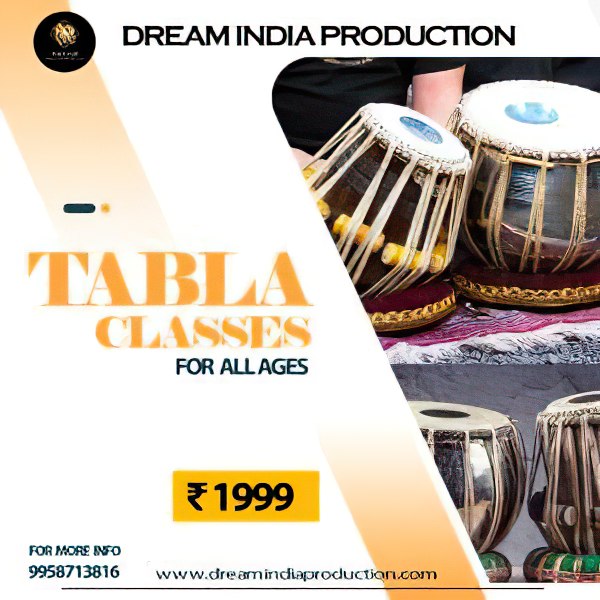Tabla Classes
Original price was: ₹2,599.00.₹1,999.00Current price is: ₹1,999.00.
– Beginners are introduced to the structure and components of the tabla, a pair of hand-played drums.
– Proper hand positioning, finger strokes (known as “bols”), and techniques for producing different sounds on the tabla are taught.
Description
Key Aspects of Tabla Classes:
1. Introduction to the Tabla:
– Beginners are introduced to the structure and components of the tabla, a pair of hand-played drums.
2. Hand and Finger Techniques:
– Proper hand positioning, finger strokes (known as “bols”), and techniques for producing different sounds on the tabla are taught.
3. Understanding Rhythmic Patterns:
– Students learn about the fundamentals of rhythm in Indian classical music, including different taals (rhythmic cycles).
4. Learning Tabla Compositions:
– Instruction on playing traditional tabla compositions, which often include intricate patterns and combinations.
5. Solo and Accompaniment Skills:
– Tabla classes may cover both solo playing and the skills required for accompanying other musicians or dancers.
6. Understanding Taals and Layakari:
– In-depth exploration of various taals (rhythmic cycles) and layakari (rhythmic variations) to enhance the student’s rhythmic vocabulary.
7. Improvisation and Creative Expression:
– Advanced tabla classes may include instruction on improvisation and creative expression within the framework of traditional compositions.
8. Ear Training:
– Developing the ability to recognize and reproduce different tabla sounds and compositions through ear training.
Types of Tabla Classes:
1. Private Lessons:
– One-on-one instruction with a tabla teacher. Private lessons offer personalized attention and are tailored to the individual’s skill level and goals.
2. Group Classes:
– Classes where multiple students learn together. Group classes provide opportunities for peer interaction and learning from each other.
3. Online Tabla Classes:
– Virtual lessons conducted over the internet. Online classes offer flexibility and accessibility, allowing students to learn from home.
4. Music Schools and Academies:
– Formal music institutions often offer tabla classes as part of their curriculum. Students may follow a structured program leading to certifications or degrees.
Benefits of Tabla Classes:
1. Cultural Connection:
– Learning to play the tabla provides a connection to the rich cultural and musical traditions of India.
2. Versatility:
– The tabla is a versatile instrument, used in various genres of Indian classical, devotional, and popular music.
3. Rhythmic Precision:
– Tabla classes help develop a high level of rhythmic precision and a deep understanding of complex rhythmic structures.
4. Collaboration Opportunities:
– Tabla players often have opportunities to collaborate with other musicians, dancers, and performers.
5. Focus and Concentration:
– Practicing the tabla enhances focus, concentration, and discipline.
Whether pursued for cultural, artistic, or personal reasons, tabla classes offer a structured approach to learning and mastering this traditional Indian percussion instrument.




